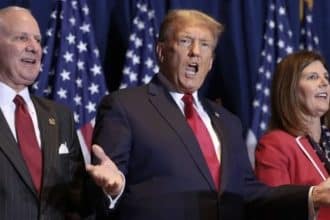India has dealt a potentially fatal blow to the World Trade Organisation’s hopes of modernising the rules of global commerce and remaining the central forum for multilateral trade deals.
In the short term, this is a setback for freer commerce. In the longer run, it means trade liberalisation may advance amongst narrower groups of countries, denying dissenters a chance to block progress.
While the unwieldy 160-member, Geneva-based WTO will survive as a body for enforcing existing multilateral agreements, smaller clubs of like-minded nations are trying to move ahead faster to update the trade rules among themselves.
“Without a serious shakeup, the WTO’s future looks like that of the League of Nations,” said Simon Evenett, a professor at the Swiss Institute for International Economics. “Perhaps ultimately that’s what some governments want.”
Last week India vetoed the adoption of a treaty to simplify, standardise and streamline the rules for shipping goods across borders, having previously agreed to its terms at a ministerial conference in Bali last December. It blocked the text because it wanted more attention paid to its concerns over food security.





